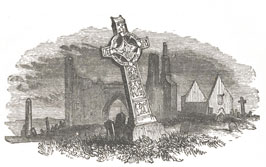

The still ongoing rise of the northern parts of the British Isles, as a result of the last Ice Age and human activity, have now changed, what must have been one of the most spectacular places within sight of the island of Ireland, for it was separated from the mainland. What is now called Inishowen, was indeed and not so long ago (2) an island, or more precise, an island of islands. “In righ aile” – The other king, or “alii fundatoris Dairi Chalgaigh” – the other founder of Daire Calgaig, p. It could have originated from the word alios -’others’ (1) for two reasons.ġ Irish aile as in a poem found in the Annals of Tigernach (Whitley Stokes) p.125 But, and in all their wealth, there are very few occasions when someone comes from Aile(a)chthir and in one story, of the battle of Airtech, Aileachthir is given to Fiachu, son of Conchobar.Īmong the words with the root al, two possibilities hold, at least for me, the answer to the riddle of the meaning of Aileachthir, the land of Aileach. In Irish legends a place, be it a territory or palace, called Aileach, does not exist and no one ever journeys, fights or feasts in a location of this name. Other variations are possible on Aileach but none invokes even a remote feeling of eureka. It is also incorrect, since an ail is a rock, immovable and firmly attached to the ground, therefore not used in house building. The explanation of it deriving from Ail-tech, the house of stone, seems to be the most unsuitable name when applied to a territory, land and kingdom.

One that has caused much consternation is Aileach itself. Scrolling through some pages of Pokorny’s Indo-European Dictionary, it became clear that most words have double meaning, seemingly indicating the opposite, as if they include the two sides/aspects of one. Tracing the root of a name or word and its journey might be in many cases the only opportunity we have left to solve some unsatisfactory issues of the past, like finding a somewhat mislaid kingdom and the name of a monument, which was not called the Grianán of Aileach until recently. Preview of its first 49 but magnificent pages John Minahane The Christian druids: on the filid or philosopher-poets of Ireland And there still remains the intriguing fact that poems were mainly recited, implicating that not only the poet but also his audience must have understood the multiple suggestions of words, narrowing or widening them by slight nuances in the bards voice. But I should have known better than to underestimate the power of this language and of those who used it so skilfully. Aside from my frustration over the lack of evidence and information as to the origin and character of the monument and the kingdom of Aileach, which is due to powerful pens of the past, trying to translate a thousand years old poem did not improve upon my already failing patience.


 0 kommentar(er)
0 kommentar(er)
